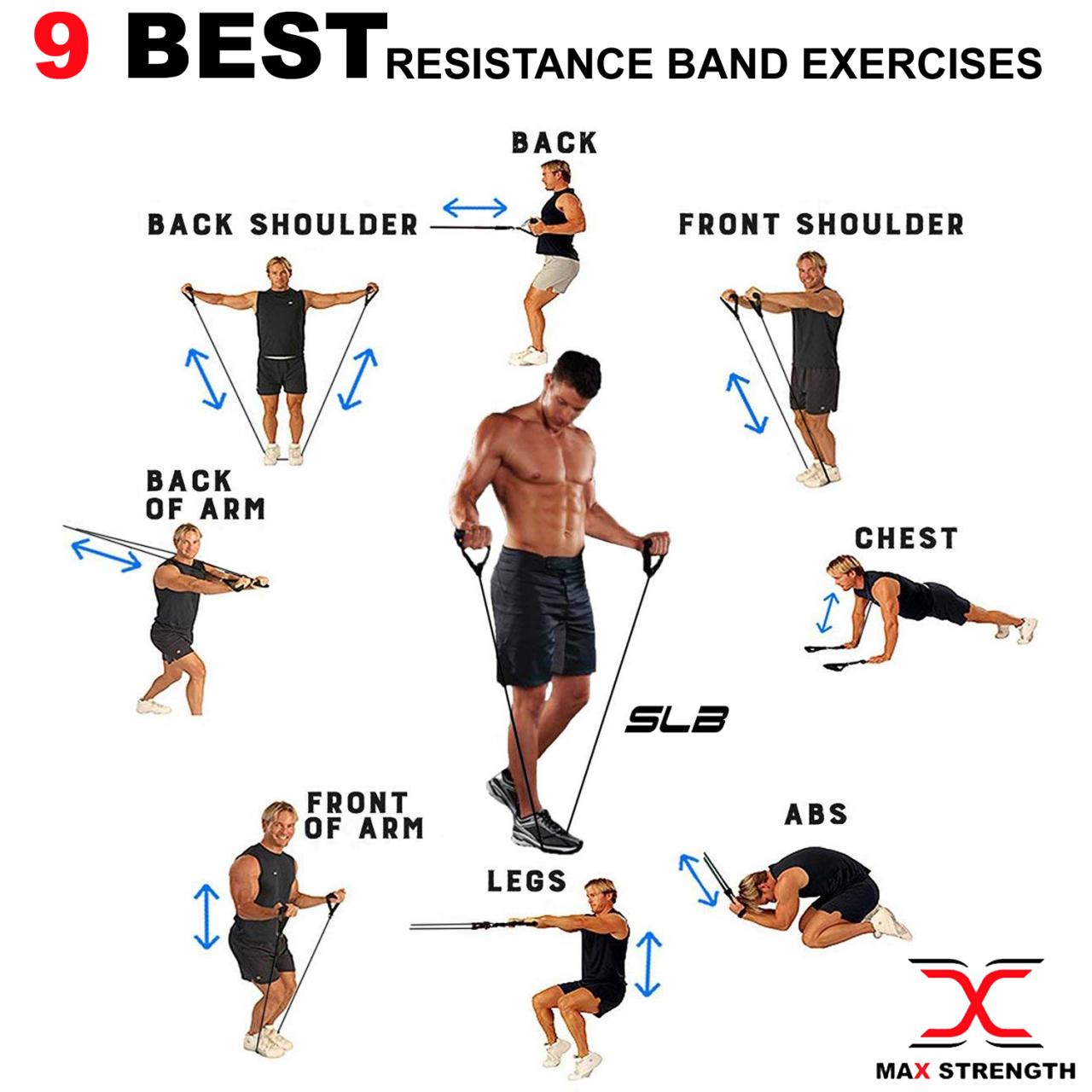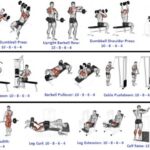Best Resistance Workout programs are crucial for building strength, muscle mass, and overall fitness. This guide delves into designing effective routines tailored to various fitness levels, from beginner to advanced. We’ll explore different training methods—bodyweight, free weights, and machines—comparing their effectiveness for achieving diverse goals, such as strength gains, hypertrophy, and endurance. Understanding the nuances of exercise selection, proper form, and recovery protocols is key to maximizing results and avoiding common pitfalls.
We’ll cover essential elements, including detailed workout program designs, exercise selection and execution, nutrition and recovery strategies, and techniques for incorporating variety and progressive overload to prevent plateaus. Ultimately, the best resistance workout is the one that’s sustainable, enjoyable, and consistently challenges you to reach your fitness objectives.
Nutrition and Recovery for Optimal Results: Best Resistance Workout

Resistance training, while effective in building muscle and strength, demands a strategic nutritional approach to maximize gains and facilitate recovery. Optimal fueling supports muscle protein synthesis, replenishes glycogen stores, and minimizes the risk of injury and overtraining. Ignoring nutrition significantly diminishes the effectiveness of any workout regime.
Essential Nutrients for Muscle Growth and Recovery, Best Resistance Workout
Muscle growth and repair following resistance training hinge on the availability of specific macronutrients and micronutrients. Protein, the building block of muscle tissue, is paramount. Aim for a daily protein intake of approximately 1.6 to 2.2 grams per kilogram of body weight, depending on training intensity and individual needs. Excellent sources include lean meats (chicken breast, turkey), fish (salmon, tuna), eggs, Greek yogurt, and various plant-based proteins like lentils and tofu.
Carbohydrates provide the energy necessary for intense workouts and replenish glycogen stores depleted during exercise. Opt for complex carbohydrates such as brown rice, quinoa, sweet potatoes, and whole-grain bread for sustained energy release. Healthy fats, crucial for hormone production and overall health, should also be included in the diet. Sources include avocados, nuts, seeds, and olive oil.
Furthermore, micronutrients such as iron, zinc, and vitamin D play supporting roles in muscle growth and recovery. Iron is essential for oxygen transport, while zinc supports protein synthesis, and vitamin D influences muscle protein metabolism.
The Importance of Sleep and Rest for Muscle Recovery
Adequate sleep and rest are often overlooked yet are integral to muscle recovery and overall fitness. During sleep, the body releases growth hormone, crucial for muscle repair and growth. Sleep deprivation hinders this process, leading to reduced muscle protein synthesis and impaired recovery. Aim for 7-9 hours of quality sleep per night. Rest days are equally important, allowing muscles to repair and rebuild.
Overtraining can lead to injury, fatigue, and plateaus in progress. Scheduling rest days strategically into a training program is as important as the training itself. For example, a common approach is to incorporate one or two rest days per week, depending on the intensity and volume of the training program. Athletes often incorporate active recovery on rest days, such as light cardio or stretching, to promote blood flow and reduce muscle soreness.
Sample Meal Plan for Resistance Training
The following sample meal plan provides a framework for fueling a resistance training program. Individual needs vary based on factors such as age, sex, activity level, and dietary preferences. This plan offers options to accommodate different dietary needs and preferences, highlighting the importance of personalization. Consult a registered dietitian or nutritionist for personalized guidance.
| Meal | Option 1 (High-Protein) | Option 2 (Vegetarian) | Option 3 (Vegan) |
|---|---|---|---|
| Breakfast | 3 whole eggs with spinach and whole-wheat toast | Greek yogurt with berries and granola | Tofu scramble with vegetables and whole-wheat toast |
| Lunch | Grilled chicken salad with mixed greens and quinoa | Lentil soup with whole-grain bread | Chickpea and vegetable curry with brown rice |
| Dinner | Salmon with roasted vegetables and sweet potato | Vegetarian chili with brown rice | Lentil shepherd’s pie with sweet potato topping |
| Snacks | Protein shake, almonds, apple with peanut butter | Trail mix (nuts, seeds, dried fruit), Greek yogurt, banana | Edamame, fruit smoothie (banana, berries, plant-based milk), rice cakes with avocado |
Crafting the best resistance workout requires a holistic approach. It’s not just about lifting heavy; it’s about understanding your body, setting realistic goals, and consistently applying the principles of progressive overload, proper form, and adequate recovery. By incorporating variety, listening to your body, and making informed choices about exercise selection and nutrition, you can build a sustainable program that delivers impressive results, fostering both physical strength and mental resilience.
Remember consistency is key to achieving long-term success.

